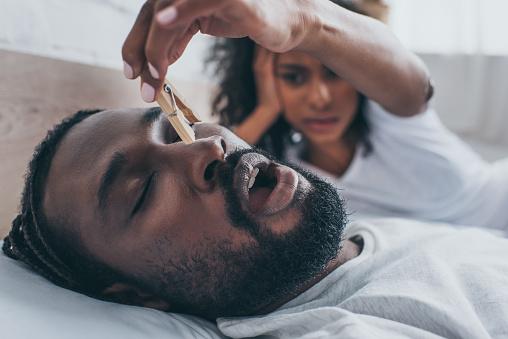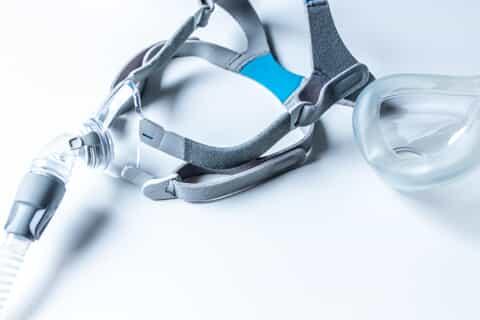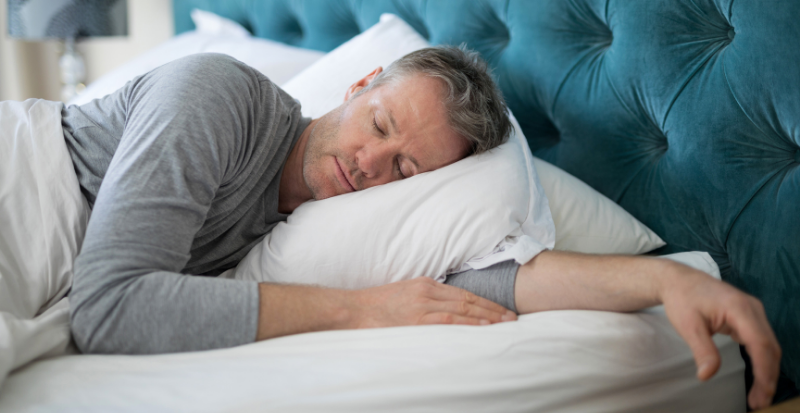Sleep apnea is a sleep disorder in which a person has episodes of stopped breathing. If it goes untreated, it can cause loud snoring, daytime tiredness, or more serious problems like heart trouble or high blood pressure. According to the America Sleep Apnea Association over 100 million people suffer from sleep apnea, worldwide.
Types of Sleep Apnea
There are three sleep apnea subtypes.
- Obstructive sleep apnea - the most common and is a result of a blockage of the airway.
- Central sleep apnea - occurs when the brain is not sending signals to stimulate a breath.
- Complex sleep apnea - is a combination of both obstructive and central events.
Why is Sleep Apnea a Health Concern?

It is estimated as many as 80% of those with sleep apnea are currently undiagnosed. Left untreated, sleep apnea increases the risk of high blood pressure, heart arrhythmias like a-fib, heart attack, type 2 diabetes, workplace accidents or injuries and sudden death. Sleep apnea occurs in about 15-30% of males and 10-15% of females in the general population and these estimates increase in higher-risk populations.
Risk Factors for Sleep Apnea
- Excess weight, narrowed airway or large neck circumference (over 16 inches for women and over 17 inches for men)
- Male
- Over fifty years old
- Post-menopausal
- Chronic nasal congestion or deformity, such as a deviated septum
- Use of certain medications, such as sleep aids or prescription pain medications
- History of stroke or brain injury
- Heart disorders, such as congestive heart failure, high blood pressure or arrhythmias like a-fib
- Lung disease, such as chronic obstructive pulmonary disease (COPD) or asthma
Symptoms of Sleep Apnea
- Snoring
- Coughing or gasping at night
- Episodes of stopping breathing during sleep
- Morning headaches
- Frequent nighttime awakenings
- Non-restorative sleep
- Daytime sleepiness
- Decreased concentration during the day
Treatments for Sleep Apnea

The most well-known and most effective treatment for sleep apnea is positive airway pressure (PAP) therapy, such as continuous positive airway pressure (CPAP) machine. One of the main reasons we hear people do not want to get tested for sleep apnea is concern about wearing a CPAP at night. There are other treatment options, including oral appliance therapy, upper airway surgery or a mechanical device implant which can be considered if PAP therapy is tried and failed. It is important to discuss the risks and benefits of alternative therapies with a healthcare provider to determine which treatment option is best for you.
Altru Sleep Center
Altru’s Sleep Center is staffed with a Sleep Specialty team made up of physicians, advanced practice providers, nurses and registered polysomnography technologists. This team is available for the initial consult, diagnostic workup/testing and follow-up appointments, including management of sleep apnea treatment such as CPAP.
Altru's Sleep Center offers home sleep or in-lab sleep studies. If you need a sleep study, you can be evaluated for eligibility to complete a home sleep study, which is a less invasive option for testing that can be completed in the comfort of your own home. In-lab studies are available in Grand Forks at our new location, and some outlying facilities, including Devils Lake, N.D., and Roseau, Minn.
Discuss any sleep concerns you have with your primary care provider; screening questionnaires can be completed during routine office visits. Altru’s Sleep Center team may be able to help you. For more information, call 701.780.5484.







